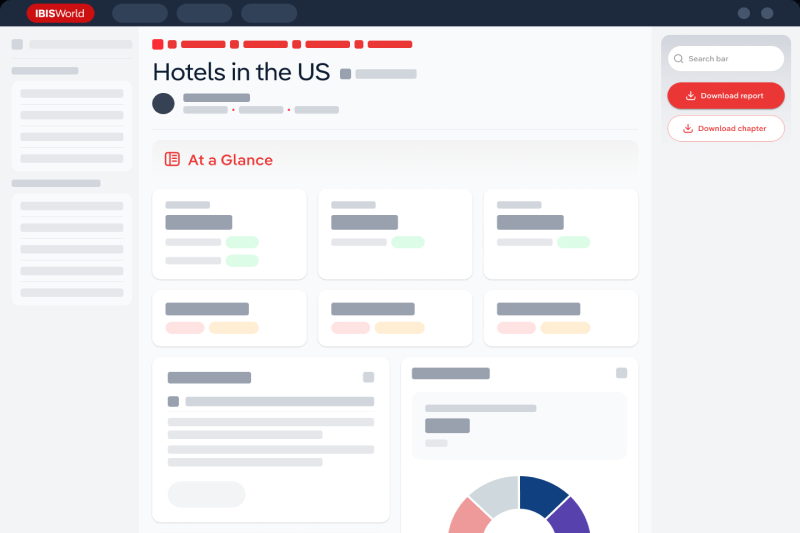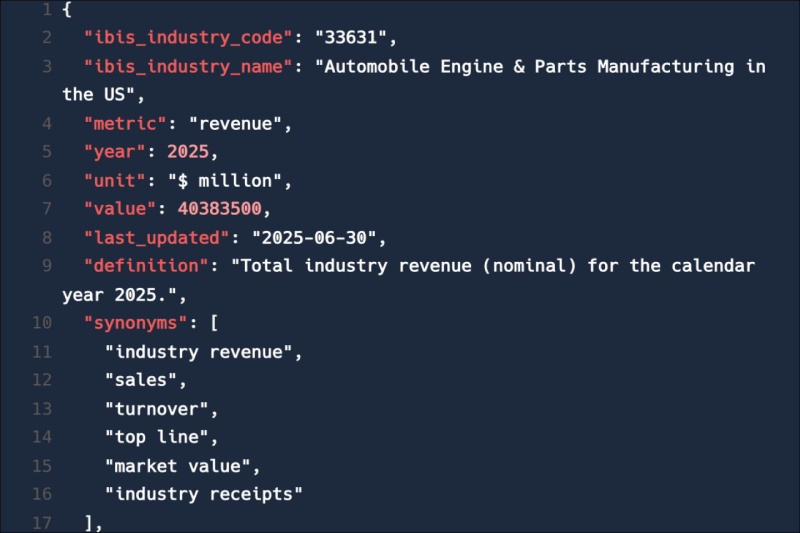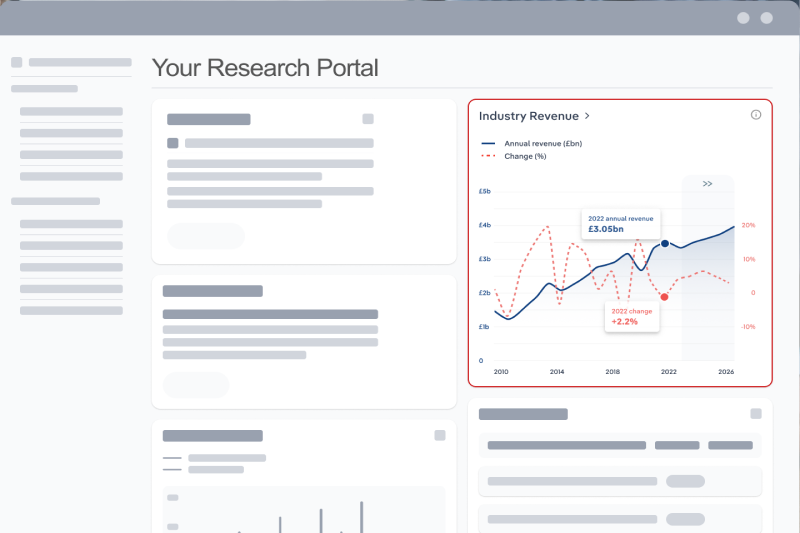IBISWorld Platform
Answer any industry question in minutes with our entire database at your fingertips.

The cultivation of cereals, pulses and oilseeds has faced a number of challenges in recent years, mainly due to the weather. Both sales revenues and the amount of inputs in the industry have been subject to strong fluctuations over the past five years. For example, high temperatures in 2020 led to a decline in grain harvests. However, industry players benefited at times from a higher revenue-cost difference. Good, high-quality harvests in 2021 and 2022, together with high wheat prices, ensured sales growth. Although the cost of fuel and fertilisers rose sharply due to the war, the industry was able to achieve a record profit in 2022 thanks to the high increase in turnover. In 2023, the situation on the grain and oilseed markets normalised noticeably and global market prices fell by 30 - 40 %. This was due to the expansion of global acreage and the restart of Ukrainian grain exports as a result of the Black Sea agreement. Industry sales in 2023 also reacted accordingly with a significant decline of over 40 %. For the current year, IBISWorld expects turnover to fall by 2% to EUR 6.8 billion. Adjusted for inflation, turnover fell by an average of 1.4% per year in the period from 2020 to 2025.

Answer any industry question in minutes with our entire database at your fingertips.

Feed trusted, human-driven industry intelligence straight into your platform.

Streamline your workflow with IBISWorld’s intelligence built into your toolkit.
IBISWorld's research coverage on the Cereals, Leguminous Crops & Oilseed Growing industry in Germany includes market sizing, forecasting, data and analysis from 2015-2030. The most recent publication was released August 2025.
The Cereals, Leguminous Crops & Oilseed Growing industry in Germany operates under the WZ industry code A01.11DE. This sector includes the agricultural cultivation of cereals, pulses and oilseeds in open fields. Germany has 11.6 million hectares of arable land and cereals are grown on 6.1 million hectares of this, almost half of which is wheat. Related terms covered in the Cereals, Leguminous Crops & Oilseed Growing industry in Germany include oleochemistry, follow-up, nodule bacteria and surface equipment.
Products and services covered in Cereals, Leguminous Crops & Oilseed Growing industry in Germany include Wheat, Barley and Other cereals.
Companies covered in the Cereals, Leguminous Crops & Oilseed Growing industry in Germany include JLW Holding AG, Deutsche Agrar Holding GmbH and Demeterhof Schwab GmbH & Co. KG.
The Performance chapter covers detailed analysis, datasets, detailed current performance, sources of volatility and an outlook with forecasts for the Cereals, Leguminous Crops & Oilseed Growing industry in Germany.
Questions answered in this chapter include what's driving current industry performance, what influences industry volatility, how do successful businesses overcome volatility, what's driving the industry outlook. This analysis is supported with data and statistics on industry revenues, costs, profits, businesses and employees.
The Products and Markets chapter covers detailed product and service segmentation, analysis of major markets and international trade data for the for the Cereals, Leguminous Crops & Oilseed Growing industry in Germany.
Questions answered in this chapter include how are the industry's products and services performing, what are innovations in industry products and services, what products or services do successful businesses offer and what's influencing demand from the industry's markets. This includes data and statistics on industry revenues by product and service segmentation and major markets.
The Geographic Breakdown chapter covers detailed analysis and datasets on regional performance of the Cereals, Leguminous Crops & Oilseed Growing industry in Germany.
Questions answered in this chapter include where are industry businesses located and how do businesses use location to their advantage. This includes data and statistics on industry revenues by location.
The Competitive Forces chapter covers the concentration, barriers to entry and supplier and buyer profiles in the Cereals, Leguminous Crops & Oilseed Growing industry in Germany. This includes data and statistics on industry market share concentration, barriers to entry, substitute products and buyer & supplier power.
Questions answered in this chapter include what impacts the industry's market share concentration, how do successful businesses handle concentration, what challenges do potential industry entrants face, how can potential entrants overcome barriers to entry, what are substitutes for industry services, how do successful businesses compete with substitutes and what power do buyers and suppliers have over the industry and how do successful businesses manage buyer & supplier power.
The Companies chapter covers Key Takeaways, Market Share and Companies in the Cereals, Leguminous Crops & Oilseed Growing industry in Germany. This includes data and analysis on companies operating in the industry that hold a market share greater than 5%.
Questions answered in this chapter include what companies have a meaningful market share and how each company is performing.
The External Environment chapter covers Key Takeaways, External Drivers, Regulation & Policy and Assistance in the Cereals, Leguminous Crops & Oilseed Growing industry in Germany. This includes data and statistics on factors impacting industry revenue such as economic indicators, regulation, policy and assistance programs.
Questions answered in this chapter include what demographic and macroeconomic factors impact the industry, what regulations impact the industry, what assistance is available to this industry.
The Financial Benchmarks chapter covers Key Takeaways, Cost Structure, Financial Ratios, Valuation Multiples and Key Ratios in the Cereals, Leguminous Crops & Oilseed Growing industry in Germany. This includes financial data and statistics on industry performance including key cost inputs, profitability, key financial ratios and enterprise value multiples.
Questions answered in this chapter include what trends impact industry costs and how financial ratios have changed overtime.
The Industry Data chapter includes 10 years of historical data with 5 years of forecast data covering statistics like revenue, industry value add, establishments, enterprises, employment and wages in the Cereals, Leguminous Crops & Oilseed Growing industry in Germany.
More than 6,000 businesses use IBISWorld to shape local and global economies
We were able to supplement our reports with IBISWorld’s information from both a qualitative and quantitative standpoint. All of our reporting now features some level of IBISWorld integration.

IBISWorld delivers the crisp business knowledge we need to drive our business. Whether it be serving up our major clients, winning new business or educating on industry issues, IBISWorld brings real value.

IBISWorld has revolutionised business information — which has proved commercially invaluable to exporters, investors and public policy professionals in Australia and overseas.

When you’re able to speak to clients and be knowledgeable about what they do and the state that they operate in, they’re going to trust you a lot more.

The market size of the Cereals, Leguminous Crops & Oilseed Growing industry in Germany is €6.8bn in 2026.
There are 48,133 businesses in the Cereals, Leguminous Crops & Oilseed Growing industry in Germany, which has declined at a CAGR of 0.3 % between 2020 and 2025.
The Cereals, Leguminous Crops & Oilseed Growing industry in Germany is likely to be significantly impacted by import tariffs with imports accounting for a high share of industry revenue.
The Cereals, Leguminous Crops & Oilseed Growing industry in Germany is likely to be significantly impacted by export tariffs with exports accounting for a high share of industry revenue.
The market size of the Cereals, Leguminous Crops & Oilseed Growing industry in Germany has been declining at a CAGR of 1.4 % between 2020 and 2025.
Over the next five years, the Cereals, Leguminous Crops & Oilseed Growing industry in Germany is expected to grow.
The biggest companies operating in the Cereals, Leguminous Crops & Oilseed Growing industry in Germany are JLW Holding AG, Deutsche Agrar Holding GmbH and Demeterhof Schwab GmbH & Co. KG
Wheat and Barley are part of the Cereals, Leguminous Crops & Oilseed Growing industry in Germany.
The company holding the most market share in the Cereals, Leguminous Crops & Oilseed Growing industry in Germany is JLW Holding AG.
The level of competition is high and steady in the Cereals, Leguminous Crops & Oilseed Growing industry in Germany.




